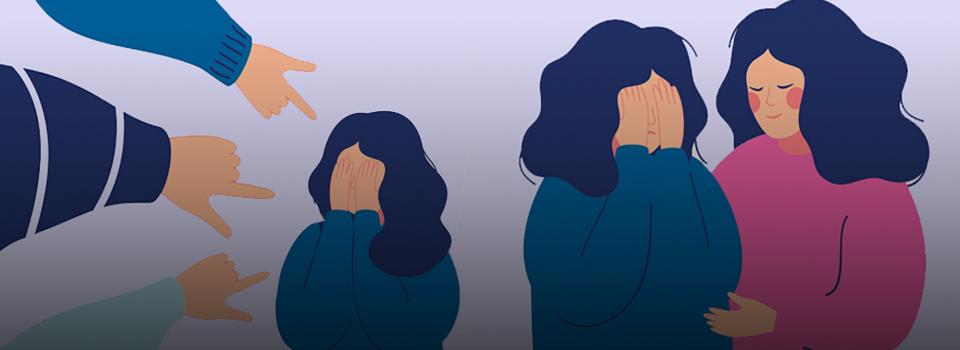Nov 18 2020
Published by
NYU Shanghai

Remember how your parents reacted when you burst into tears after a “battle” with siblings? Or how a close friend responded when you failed an important exam? Though you may not even recall them, their reactions – whether they blamed, ignored, or comforted you – have long shaped your coping strategies towards negative emotions and ability to adjust yourself to society.
In a study published in the March issue of Developmental Psychology, NYU Shanghai Assistant Professor of Psychology Cui Lixian and his American colleagues found that as girls mature, their mothers’ and peers’ reactions to their negative feelings in adolescence is lasting. As part of the study, 160 adolescent girls in the United States were recruited to self-report their emotions, emotion regulation ability, mental health status, and prosocial behaviors. At the same time, their mothers’ and peers’ reaction towards their negative moods were also measured. Then, after two years, 129 of these participants took the assessments again to determine whether their mental health status and abilities to regulate negative emotions changed over time.
Researchers found that higher levels of emotionally supportive reactions, such as comforting others and providing alternative thinking, from peers and moms were associated with lower levels of negative emotions in adolescents. In contrast, “unsupportive” practices, such as being indifferent or impatient, invalidating negative emotions, were associated with more internalized mental problems in adolescents such as anxiety and depression. Peers had a significant influence on adolescents’ prosocial behaviors such as being nice, helping and sharing things with others - their unsupportive practices predicted decreases in prosocial behaviors over time. These findings stress the important role parents and peers play in children’s emotional development and suggest that educators should target both parents and peers in teaching them to use supportive strategies in response to their children’s or friends’ expression of negative emotions.
Cui said his team’s findings were significant because they offer new insights - based on longitudinal research - into the significance of unsupportive and supportive reactions from both parents and peers.
Psychologists have repeatedly found that if parents ignore, blame, or even punish their children for their sadness, anger, and anxiety, children may feel scared and guilty to express their negative feelings and become susceptible to depression. Or they may externalize the negativity and become rebellious and aggressive. “Children are not able to learn how to manage their emotions from the irrational interactions within family, and that will cause severe behavioral and mental problems, or even tragedies such as suicides.” Cui said.
A majority of studies in the past have focused on the negative developmental outcomes such as aggressive behavior, anxiety, and depression. Few studies have looked into how supportive and unsupportive reactions can affect children’s positive development. Previous research had also paid little attention to how teenagers influenced their peers’ emotions, so Cui’s team looked more closely at peers’ influence as well. “If parents show their empathy and guide children out of the mess patiently, children will learn to regulate their negative emotions, leaving a lower chance to mental problems and motivating more prosocial behaviors such as helping and showing empathy to others,” Cui said. “Our findings suggest that negative peer interactions may particularly lead to decreases in prosocial behaviors among adolescents.”
Cui’s Affect Dynamics in Relationships Lab affiliated with the NYU-ECNU Institute for Social Development at NYU Shanghai has been working on putting the findings into practice. They have developed and piloted a Social Emotional Learning (SEL) program in two Shanghai primary schools for migrant workers’ children. The team has trained teachers to do SEL activities with children in classrooms. “From the program evaluation data we have collected so far, children’s emotion regulation, self-esteem, and school grades have shown greater improvements after a semester’s intervention compared to children from schools which were not intervened,” Cui said. “This is a successful example of how our research benefits the communities.”
Cui’s lab is also investigating how teachers influence adolescents’ attitudes and behaviors towards negative emotions. “It’s always valuable to look into how different people who have close emotional interactions with children are affecting them.” Cui said.
This research is a collaboration with Oklahoma State University, New York University, University of Southern California, and University of Pittsburgh.


